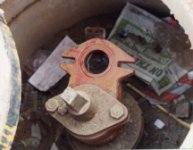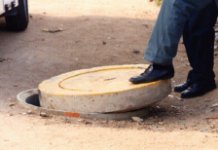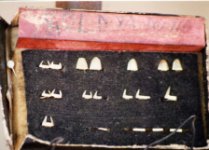Children of Fire focuses on the poorest of the poor; the people living
in areas most at risk. But we have decided that a policeman or policewoman will
now be invited to be a member of every first aid training course that we run
with St John Ambulance. We believe that
this initiative should be adopted nationally and funded by Government.
The clear need for first aid skills is that the SAPS often arrives
earliest at the scene of an accident or a crime, but South Africa's Police
Act 1995 and internal standing orders and regulations that date back to
1913, currently discourages police officers from even transporting an injured
person. Every minute wasted can be the difference between life and death.
Children of Fire believes that by offering first aid training to the SAPS in
Alex, lives will be saved.
As well as passing on those skills, we also believe that the policeman
or policewoman studying alongside people from the surrounding area is vital for
creating safer communities. One can get to know someone quite well over several
days of intense training together.
Then, when "Mpho" or "Moses" phones the emergency services to report a
crime or an accident, she or he are already known for their reliability and
integrity. This theory already works in practice in the Joe Slovo squatter camp
in Coronation/Crosby, because First Aider Collen Modau is well known to the
emergency services and they never have any doubt about the urgency of
responding to a call from him.
Charlie Ngale Ranthakgoa is the second member of Alex SAPS that we are
training. Dinah Matlapeng was the first and Edward Dikgale will probably be the
third.
Dinah Matlapeng has been a credit not just to the Police Service but the
whole community with her enthusiasm for helping, since she was trained by us in
July 2001. She makes a habit of ringing Children of Fire around 2 a.m when a
fire is blazing away, to make sure we are aware of the problem, though usually
we don't need to step in with on-the-ground help until daylight.
We follow up on the injured and the dead, the people left without
housing or possessions. If we are assured that Disaster Management is already
on the ground and active, we step aside. The Red Cross is often there to help
with blankets. And a variety of groups including the Rhema Church can
some-times help with short-term accommodation and sometimes even with food. But
the quality of help is not consistent and there are some glaring gaps.
Recently 140 people looked like they would spend a night out in the
cold, because the system wasn't working. Only by the continued endeavours of
Dinah and her station commissioner, Director Mothibe, did we eventually ensure
all the people affected had shelter some 16 hours after the fire in which they
had lost everything.
Children of Fire cannot replace everyone's lost possessions but if the
big fires are not too close together, we have appreciated the help of nearby
large companies in Sandton, particularly African Merchant Bank and Investec,
where the ordinary employees have stepped in to help with clothes and other
donations of household items.
A Children of Fire field volunteer goes out and collects the names of
people often while they are still walking among the ashes. That way we try to
ensure that only the people who have actually suffered loss, get donations. We
often also publish the names of those we have helped on the website, providing
maximum transparency and accountability on every occasion.
Causes of Fires
One recent Alex fire started when a man had a nervous breakdown. His
relatives sought help from the emergency services and eventually managed to get
him admitted to an ordinary hospital. But the man discharged himself and went
back to the shack. Because of his mental state, he showed great intolerance for
the natural noise of children and started lighting pieces of paper and throwing
them all around him. His relatives got the paper, the stove, the matches away
from him. The man went out and bought a candle and matches and started again.
This was repeated several times, with the relatives not knowing what to do.
Eventually the man locked himself in the shack and set it alight.
Five children were injured alongside him and over the following days,
three of them died too; two others remain in hospital with terrible
injuries..
There needs to be a clear understanding of how to help someone having
a breakdown and to ensure that they are not a danger to the surrounding
community.
While the fire was blazing, the fire brigade came swiftly. They could
not put the fire out quickly though because a brass component had been stolen
from the nearest fire hydrant. Without that brass ring, a fire hose could
not be attached. EVERY SECOND counts in fighting a fire. To run down the street
hoping to find the next fire hydrant ... or the next one... have not been
tampered with, is not acceptable. As the fire blazes, the firefighters are
still joining hoses together from the distant hydrant. And children are
horrifically injured.
 |
 |
| The brass hose
coupling that is stolen to sell for a few rands but that costs R182 to buy and
a lot of labour costs to reinstall. |
A damaged fire
hydrant with the brass piece missing. |
 |
Close-up of a
complete fire hydrant. |
 |
How an undamaged fire
hydrant appears on the street. |
 |
Once the lid has been
dislodged, someone has at least tried to steal the brass component.
|
Arson
At another Alex fire that affected scores of people,
the community allege the following sequence of events. A man was buying a
shack, week by week, in installments. The seller arrived for the final payment
and noticed how well-furnished the shack now seemed to be. The seller allegedly
returned with a firearm and demanded certain goods including a radio. The
resident then allegedly asked the police to arrest the shack-seller for theft
of the radio. Later that day the shack-seller allegedly returned, demanding
that the resident paid the R500 that it has cost him to be free. (It is not
clear if this was bail money or something like admission of guilt money). The
resident ran away and the angry shack-seller allegedly returned with a 25 litre
drum of liquid fuel, poured it on the shack and set it alight. All the
surrounding shacks burned down as well.
On Sept 5th 2001 - 34 shacks burned down in one Alex fire. Typically
there average four people to every shack and the basic cost of lost possession,
Ids, clothes, etc AND of extinguishing a fire is R10,000 per shack. Children of
Fire delivered clothes to the people the next day. The Red Cross provided
blankets. There were at least three big fires in September 2001 and many many
smaller ones.
Alcohol
Drunks fall asleep, forgetting they have lit a candle
or stove. They knock the candle or stove over in their sleep.
Drunks knock
candles or stoves over, simply because they are not in full control of their
movements.
Drunks get angry and assault their partners - sometimes
intentionally causing injury (burns) by throwing a pot of hot food or liquid at
the person they are angry with; sometimes accidentally kicking over a stove in
the midst of the domestic dispute.
Revenge
Angry ex-wives or ex-husbands set the shack of their
former partner on fire. Sometimes this is done with the intention just to
damage possessions; sometimes it is done with the intention of harming the
person or people inside. Whether intentional or not, usually large numbers of
other people lose their possessions or even their lives, simply because there
is no effective mediation available for sad and angry people.
All emotional
responses are heightened by alcohol.
Jealousy
People who are jealous of another's success,
sometimes resort to arson.
All emotional responses are heightened by
alcohol.
Territorial power
Shack attacks by burning are often done to
protect territory - whether it be a shebeen business, a shack-renting business,
or politically-inflamed xenophobia. If politicians were charged with culpable
homicide for their inflammatory speeches, maybe the emergency services would
have less day-to-day tragedy to handle.
People need places for safe recreation (e.g. soccer fields) in the
poorest communities most of all. They also need more satellite police stations
and more police reservists being found within the squatter camp communities
themselves.
Punishment
It is still common to punish children for such
"crimes" as bedwetting or for petty theft, by placing the child's hand or hands
on a hot stove. Disabled children have even been put in boiling hot baths as
"punishment" for behaviour beyond their own control.
Some other causes:
Candles fall over.
Children are left
alone and play with matches.
Home-made paraffin stoves explode.
Candles
are placed close to flammable materials like curtains.
Problems of Fire Spreading Rapidly
Rubbish
There is ineffective rubbish collection in most
squatter camps. On the one hand we hear about the need for poverty alleviation;
on the other hand we hear that massive budgets are not spent because there is
no infrastructure in place to manage the funds.
There are a variety of paid jobs (at piece-job rates) that could be
created in squatter camps or other high-risk communities (as in some hostels),
such as rubbish collection on a daily basis.
The jobs should NOT be allocated by political committees nor even (on
Children of Fire's experience), by ward councilors. They should be allocated by
the most credible, accountable, NGO that has worked in that community for a
long time. They could be on a rotating basis to maximize the community benefit
and to minimize the potential for corruption.
Fire Hydrant - theft of parts
If there is no large quantity of
water readily available, there is no hope of putting out the fire. Children of
Fire provides fire-fighting water tanks for some communities. This work should
be supported by local companies and by government. African Merchant Bank and
the Nedcor Foundation are among several companies that have helped with this
initiative so far.
 |
 |
| Fools gold - stolen
brass is fashioned into tooth edgings that are applied with pliers to give the
appearance of wealth. |
Is it gold or is it
brass? A woman in Alexandra has a glittering smile. |
The brass stolen from fire hydrants is sold for R6.50 a kilo. It is
melted down and made into very thin brass sheet. A sheet measuring some 50cm by
20cm is sold for R50. This is then fashioned into ornamental teeth cappings for
people who can't afford real gold, and the brass edging is sold by hawkers (and
applied with pliers that often crack the teeth) for between R15 and R50
depending on size.
People get "pretty" teeth at the cost of children being
burned.
Proximity of shacks
Town planning could also be used in
squatter camps. Not at the same level as the formal suburbs, but there is no
logical reason not to apply some safety controls to the people most at risk.
They deserve protection as much as anyone else.
Moving the People: After the Fire
The most logical time to move people to better accommodation or at least
a safer site, is when their shacks have burned down. We have asked the Mayor of
Johannesburg to look at this issue some weeks ago but have yet to receive a
reply.
Written October 29th 2001